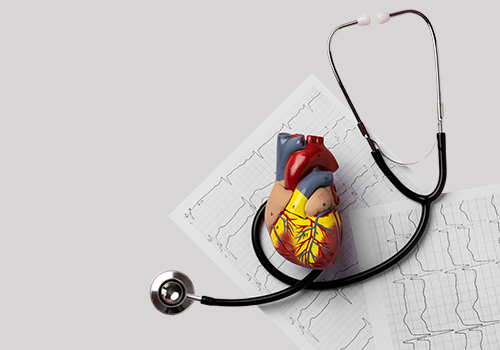Cholesterol Demystified
Explore the role of cholesterol in your body and its connection to heart health. Our content unravels the differences between “good” and “bad” cholesterol, provides insights into maintaining healthy levels, and offers dietary tips to support your cardiovascular wellness.
What is Cholesterol ?
Cholesterol is a complex and essential lipid molecule present in your body, with significant roles in maintaining cell membranes, producing hormones, and aiding in digestion. Understanding the intricacies of cholesterol and its implications for heart health is essential for making informed decisions about your cardiovascular well-being.
Understanding “Good” and “Bad” Cholesterol:
Cholesterol is transported through your bloodstream by lipoproteins, which are categorized into two primary types:
Low-Density Lipoprotein (LDL) Cholesterol:
Commonly known as “bad” cholesterol, LDL cholesterol carries cholesterol from the liver to various parts of the body. However, if there’s an excess amount, it can lead to the buildup of plaque in artery walls, increasing the risk of atherosclerosis and heart disease.
High-Density Lipoprotein (HDL) Cholesterol:
Referred to as “good” cholesterol, HDL cholesterol transports excess cholesterol from the bloodstream to the liver for processing and elimination. Higher levels of HDL cholesterol are associated with a lower risk of heart disease.


Balancing Cholesterol Levels:
Maintaining a healthy balance between LDL and HDL cholesterol levels is vital for heart health. Elevated levels of LDL cholesterol can lead to the narrowing of arteries and reduced blood flow, while low levels of HDL cholesterol may impede the body’s ability to remove excess cholesterol.
Factors Influencing Cholesterol Levels:
Various factors can influence cholesterol levels, including genetics, diet, physical activity, and age. Genetic predisposition can contribute to how your body processes cholesterol, while lifestyle choices play a significant role in determining your overall cholesterol profile.
Heart-Healthy Dietary Choices:
Adopting a heart-healthy diet can positively impact cholesterol levels and reduce the risk of heart disease. Incorporate foods rich in soluble fiber, such as oats, legumes, and fruits, as they can help lower LDL cholesterol levels. Choose lean protein sources, limit saturated and trans fats, and prioritize unsaturated fats found in avocados, nuts, and fatty fish.
Regular Cholesterol Check-Ups:
Routine cholesterol screenings are essential for assessing your cardiovascular risk. Consult your healthcare provider to determine how often you should undergo cholesterol testing based on your age, risk factors, and medical history.
Understanding the roles of “good” and “bad” cholesterol, making informed dietary choices, and prioritizing regular cholesterol check-ups are steps toward promoting optimal heart health and reducing the risk of cardiovascular complications.
